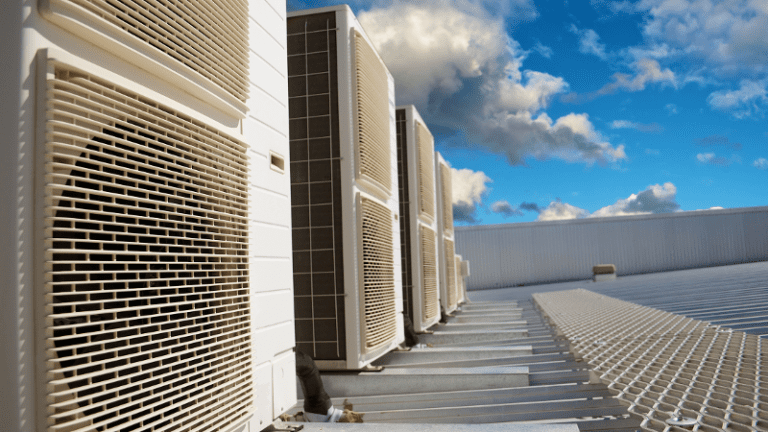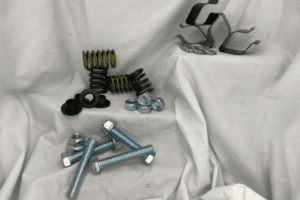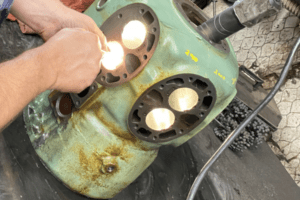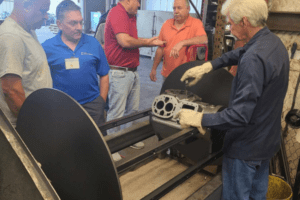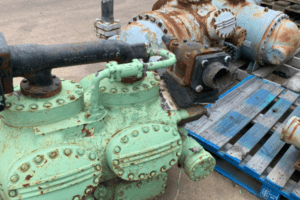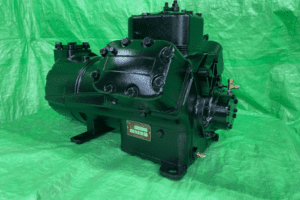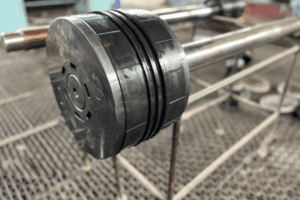Let’s get it out of the way: Commercial compressor failure is a big deal.
The fallout from sudden loss of an HVAC compressor is serious. Having the right components on hand can turn a disaster into an inconvenience, but even a repair will leave you racing against the clock to avoid a major disaster.
When other parts of a commercial HVAC system break down, the compressor works harder to make up the difference. It’s under more pressure – literally, in mechanical terms – to make the refrigerant gas available to the rest of the system. That can add up, and you might end up with a failed compressor.
But remember this: With proper maintenance, most HVAC compressors last long enough to age out gracefully.
Today’s commercial compressors are even more durable than past generations. They’ve picked up a full year of service on average, lasting anywhere from eight to ten years with regular maintenance. (Yes, you may notice a gradual loss of efficiency and higher energy usage in the second half of the unit’s life.)
It’s a good thing that compressors generally don’t fail out of the blue because dealing with it is a real emergency. If your compressor has failed, flooding and slugging are potential culprits. Another crucial concern is wiring failures that deliver the incorrect voltage to your compressor.
In situations like these, you need to get down to the root of the problem so it doesn’t happen again. After all, you don’t want a brand new commercial compressor to suffer the same fate in a few weeks.
Luckily, most troubleshooting won’t turn out to involve the compressor. That doesn’t mean it isn’t important, but the implications are limited. Find the source of the issue, make a quick replacement, and you can get back to business as usual without worrying about a real system failure is lurking around the corner.
Let’s look at a few common cases where the culprit at hand usually isn’t the compressor:
1. Lukewarm Air Blowing in Your Commercial HVAC System
Nothing causes more consternation among people living or working in a building than getting warm air when cold air is expected. This is especially troublesome in businesses that are open to the public in hot climates, where a blast of air conditioning to the face lets you know you’ve reached civilization.
In very rare circumstances, lukewarm air can indicate the compressor is not cycling enough refrigerant to meet your needs. Most of the time, though, you’ve simply run out of refrigerant. This can happen on its own, but it may indicate there’s a leak somewhere in your system that needs patching.
2. Continuous HVAC Cycling
When an HVAC cycles on and off on a regular basis, it’s drawing more power and causing heavier wear and tear to a variety of components. Sometimes, this can point to damage within your compressor’s motor. Visit the unit and look for signs of unusual noise, clicking, or vibration.
As buildings have upgraded their thermostats, a new and much more likely answer to observations of continuous cycling has developed: You need to calibrate your thermostat. Today’s smart thermostats can behave in very unpredictable ways when their sensors are dirty or in need of replacement.
3. Hot Areas in Your Building
Continuous cycling can occur if the system detects that it isn’t meeting the temperature requirements in some areas of your building. If outlying areas of a building (or a multi-building campus) are always hot, it isn’t because the compressor isn’t working. This is usually a ventilation fault.
The most common ventilation shortfall is blocked airflow due to a dirty or damaged air filter. Most of the time, this is solved just by changing it out. If you have an older building, however, your ductwork might be making things harder. Old, narrow ducts might need to be manually cleaned out.
4. Mysterious Odors
Odors are almost never related to your compressor itself, but that doesn’t mean you can’t track down the reason within the HVAC system. It’s essential to identify what kind of odor you’re dealing with right away since metallic or “burnt” smells can indicate electrical shorts that need immediate attention.
Narrow down the location of the odor as best as possible with user reports. Once pinpointed, check your vents and ducts for blockage.
5. Noises and Vibration
Most noise and vibration noticeable in an HVAC system can be traced back to loose ducts, filters, or other components. If a compressor itself is vibrating or making unusual noises, congratulations: It’s really a compressor problem. Minimizing vibration is essential for keeping your system running.
All in all, it’s not the compressor … until it is. We recommend plenty of spare parts on hand to help with compressor maintenance. When your unit is finally ready to retire, a remanufactured commercial compressor can save you money and cut down time to fulfillment.

